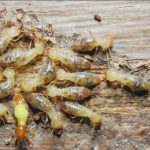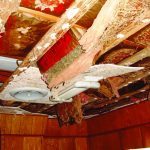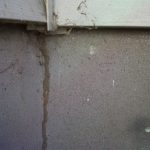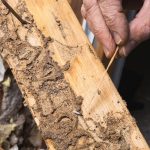Termites are a common and costly problem in North Carolina. They can cause serious damage to homes and other structures if left unchecked. This article will provide homeowners with the necessary information to protect their homes from termite damage. We’ll discuss the different types of termites in NC and how to identify them, as well as the best prevention and control methods. We’ll also discuss the potential damages that termites can cause and how to avoid them.
History of Termites in North Carolina

| Year | Event |
|---|---|
| Pre-1800s | Subterranean termites (Reticulitermes flavipes) were first documented in North Carolina in the late 1700s. |
| 1930s | Formosan subterranean termites (Coptotermes formosanus) were first reported in North Carolina in the 1930s. |
| 1940s | Drywood termites (Incisitermes minor) were first reported in North Carolina in the 1940s. |
| 1960s | The eastern subterranean termite (Reticulitermes flavipes) was found in large numbers in North Carolina in the 1960s. |
| 1970s | In the 1970s, Formosan subterranean termites (Coptotermes formosanus) were found in large numbers in North Carolina. |
| 1990s | In the 1990s, the native subterranean termite (Reticulitermes flavipes) was found to be the most common species in North Carolina. |
Termites are a major pest in North Carolina and have been for centuries. The most common species of termites in NC are the subterranean termites, which are native to the area. They were first documented in the late 1700s. The Formosan subterranean termite, an invasive species from Asia, was first reported in the 1930s and has since become a major pest in the state. The Drywood termite, another species native to North Carolina, was first reported in the 1940s. In the 1960s, the eastern subterranean termite was found in large numbers in North Carolina. In the 1970s, Formosan subterranean termites were found in large numbers in the state. By the 1990s, native subterranean termites were found to be the most common species in North Carolina.
Types of Termites in NC
Drywood Termites: These termites require relatively small amounts of moisture and can be found in small wooden structures, such as sheds, decks, and fences. They live in colonies and can cause extensive damage over time.
Subterranean Termites: These termites require large amounts of moisture and can be found in moist soil. They live in colonies and can cause extensive damage over time. They are the most common type of termite found in North Carolina.
Formosan Termites: These termites are native to China and can be found in warmer climates. They are highly destructive and can cause extensive damage in a short amount of time.
Dampwood Termites: These termites require high amounts of moisture and can be found in decaying wood. They are often found in stumps, logs, and other moist, decaying wood.
Signs of Termites in NC
- Mud tubes on walls, ceilings, or floorboards
- Discarded wings of flying termites
- Soft, blistered wood in areas of the home
- Swarms of winged termites near windows
- Bubbling or cracked paint on walls
- Crumbling wood or sawdust near doors, windows, or other wood structures
- Discolored or drooping drywall
Damage Caused by Termites in NC
- Structural damage to building foundations, walls, and wooden components
- Damage to furniture, books, clothing, and other stored items
- Tunneling in insulation, drywall, and other materials
- Swarms of termites in and around homes
- Leaky roofs due to wood damage
- Damage to decks, fences, and other wooden structures
Prevention and Control of Termites in NC

The best way to prevent termites in North Carolina is to eliminate potential food sources for them. This includes removing dead wood, leaves, and other organic material from around the home. Additionally, it is important to keep the soil around the foundation of the home dry. Termites are attracted to moist conditions and can easily get into a home through small cracks and crevices in the foundation.
In addition to prevention, controlling termites can be done by using baiting systems. Baiting systems involve placing bait stations around the home that contain a bait that attracts termites. The bait is then replaced with a pesticide that will kill the termites when they feed on it.
Another method of controlling termites is to use a chemical barrier. This involves applying a pesticide to the soil around the foundation of the home. The pesticide will create an invisible barrier that will keep termites from entering the home.
| Prevention | Control |
|---|---|
| Remove dead wood, leaves, and other organic material from around the home | Baiting systems |
| Keep soil around the foundation dry | Chemical barriers |
Treatments for Termites in NC
In North Carolina, the most common type of termite is the subterranean termite. These pests can cause significant damage to homes and other structures if left untreated. Fortunately, there are a number of treatments available to protect your property from termites.
The most effective treatment for termites in NC is a termite baiting system. This system uses small plastic bait stations that contain a poison that is eaten by the termites. The bait stations are placed around the perimeter of the structure and the poison is slowly released over time. The termites will carry the poison back to their colony where it will kill the entire colony. This method is effective in eliminating a termite infestation.
Another option for treating termites in NC is a chemical barrier treatment. This treatment involves applying a liquid pesticide around the perimeter of the structure. This creates a barrier that the termites cannot cross, and it will kill any termites that come into contact with it. This is an effective treatment for eliminating an existing infestation, but it does not provide long-term protection.
Finally, for long-term protection, a homeowner can have a foundation treatment applied. This treatment involves applying a foam or liquid pesticide to the foundation and other areas of the structure where termites can enter. This will create a barrier that will last for several years and will prevent future infestations.
No matter which treatment you choose, it is important to have an experienced professional inspect your property and provide the best treatment option for your situation. With the right treatment, you can protect your home from termite damage.
Cost of Treating Termites in NC
The cost of treating termites in NC will depend on the extent of the infestation, the type of termite, and the type of treatment used. On average, treatment can range from $500-$3000. The most common methods used to treat termites are baiting, chemical treatment, and fumigation.
Baiting
Baiting is a popular method of treatment and can cost anywhere from $500-$1000. This type of treatment uses a slow-acting poison that is placed around the perimeter of the home or near the infestation. The bait is designed to draw out the termites and kill them.
Chemical Treatment
Chemical treatment is another popular method of termite treatment and can cost anywhere from $750-$2000. This type of treatment involves spraying the soil around the perimeter of the home with a termiticide. The termiticide is designed to kill the termites and prevent further infestations.
Fumigation
Fumigation is the most expensive, but also the most effective, method of treating termites in NC. This type of treatment can cost anywhere from $1500-$3000. Fumigation involves sealing off the infested area and filling it with a gas that kills the termites. Fumigation is usually used for large, extensive infestations.
Table
| Treatment | Cost |
|---|---|
| Baiting | $500-$1000 |
| Chemical Treatment | $750-$2000 |
| Fumigation | $1500-$3000 |
Professional Services for Treating Termites in NC
- Pest Control Companies: Pest control companies offer a range of services, such as termite inspections, treatments, and preventative maintenance. Many offer free estimates and apply the most up-to-date methods and treatments.
- Exterminators: Exterminators specialize in the removal of pests, such as termites, from residential and commercial properties. They are licensed and trained to use specialized methods and treatments.
- Structural Pest Control Companies: Structural pest control companies specialize in treating termites and other wood-destroying organisms. They offer services such as inspections, treatments, and repairs.
- Do-It-Yourself Solutions: There are a number of do-it-yourself solutions available for treating termites. These solutions are typically less expensive than professional services and can be used to treat small infestations.
- Home Remedies: Home remedies such as borax, vinegar, and essential oils can be used to treat small infestations of termites. It is important to research these remedies before using them to ensure they are effective and safe.
Frequently Asked Questions
What kind of damage can termites cause in North Carolina?
Termites can cause extensive damage to wooden structures, including furniture, walls, doors, and windows. They can also damage insulation and electrical wiring. Left untreated, termite damage can weaken structures and increase the risk of accidents. Long-term termite damage can reduce the value of properties and require costly repairs.
How can I protect my home from termites in North Carolina?
Regular inspections and maintenance are the best ways to protect your home from termites in North Carolina. Conduct routine inspections of the foundation and walls of your house, looking for signs of termite damage. Have your home inspected annually by a professional pest control provider. Inside your home, reduce moisture levels by fixing plumbing leaks and increasing ventilation. Outside your home, reduce the risk of termites by removing any wood or organic debris, such as leaves, from around the foundation and vents. Additionally, ensure that there is a protective barrier between the soil and your home, such as a concrete foundation.
Are there any warning signs to look out for to detect termites in North Carolina?
Termites in North Carolina can cause significant damage to homes and structures. To detect their presence, homeowners should be on the lookout for signs of termite activity, such as discarded wings around doors and windows, mud tubes on exterior walls, and hollow sounding wood. If these signs are found, it is important to contact a termite control professional to inspect the property and treat the infestation.
What are the most common types of termites found in North Carolina?
The most common types of termites found in North Carolina are subterranean termites, drywood termites, and Formosan termites. Subterranean termites are the most widely distributed type in the state and can be found in both urban and rural areas. Drywood termites are mostly found in coastal areas of the state and prefer more humid conditions, while Formosan termites are the most destructive of the three and are found mainly in urban areas.
What are the best methods for controlling termites in North Carolina?
The best methods for controlling termites in North Carolina include using baits, barrier treatments, and fumigation. Baits contain a slow-acting insecticide that is toxic to termites, which is placed in the soil around the affected area. Barrier treatments involve applying an insecticide around the home’s foundation, preventing termites from entering the building. Fumigation is a process of sealing and treating a structure with a pesticide, killing any termites inside. When dealing with an infestation, it is best to contact a professional pest control service for the most effective results.
Conclusion
Termites can cause serious damage to homes in North Carolina. Homeowners should take proactive steps to protect their home from termite damage, such as having a professional inspection, installing barriers, and using baiting systems. By taking these steps, homeowners can help ensure their home remains termite-free and safe from costly damage.
